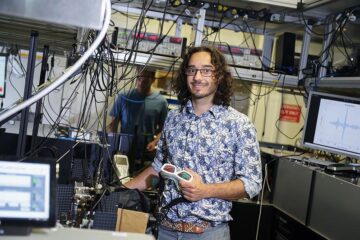Risikoprognose für CLL

The clinical course of chronic lymphocytic leukemia (CLL) is highly variable, ranging from slow progression and survival for several decades to rapidly progressive and chemotherapy-resistant disease with death within one year of diagnosis.
<p> An alternative to FISH based diagnostics has been established. A prognostic score (PS.8) for OS using the largest GEP data set available for CLL patients with long-term follow-up and validation in 149 patients has been developed. A simple but powerful gene expression score predicting overall survival (OS) and time-to-treatment (TTT) in CLL patients has been established and can easily be assayed in a routine diagnostics setting. The novel test is fast and cost effective with excellent predictive power. It is based on the expression levels of just eight selected genes that could be measured easily by qRT-PCR. <p> Next development steps include prospective confirmatory trials to assess the relevance of PS.8 to guide individualized treatment choices to improve the clinical outcome of CLL patients: <p> • Validation in prospective trials (i.e. performance of overall survival prediction for rituximab therapy) <p> • Possible role in prediction of treatment response – identification of pathway specific treatment response <p> • Characterization of the molecular/biological function of genes involved in the score
Weitere Informationen: PDF
Bayerische Patentallianz GmbH
Tel.: +49 89 5480177-0
Ansprechpartner
Peer Biskup
Media Contact
Alle Nachrichten aus der Kategorie: Technologieangebote
Neueste Beiträge

Neue universelle lichtbasierte Technik zur Kontrolle der Talpolarisation
Ein internationales Forscherteam berichtet in Nature über eine neue Methode, mit der zum ersten Mal die Talpolarisation in zentrosymmetrischen Bulk-Materialien auf eine nicht materialspezifische Weise erreicht wird. Diese „universelle Technik“…

Tumorzellen hebeln das Immunsystem früh aus
Neu entdeckter Mechanismus könnte Krebs-Immuntherapien deutlich verbessern. Tumore verhindern aktiv, dass sich Immunantworten durch sogenannte zytotoxische T-Zellen bilden, die den Krebs bekämpfen könnten. Wie das genau geschieht, beschreiben jetzt erstmals…

Immunzellen in den Startlöchern: „Allzeit bereit“ ist harte Arbeit
Wenn Krankheitserreger in den Körper eindringen, muss das Immunsystem sofort reagieren und eine Infektion verhindern oder eindämmen. Doch wie halten sich unsere Abwehrzellen bereit, wenn kein Angreifer in Sicht ist?…

















